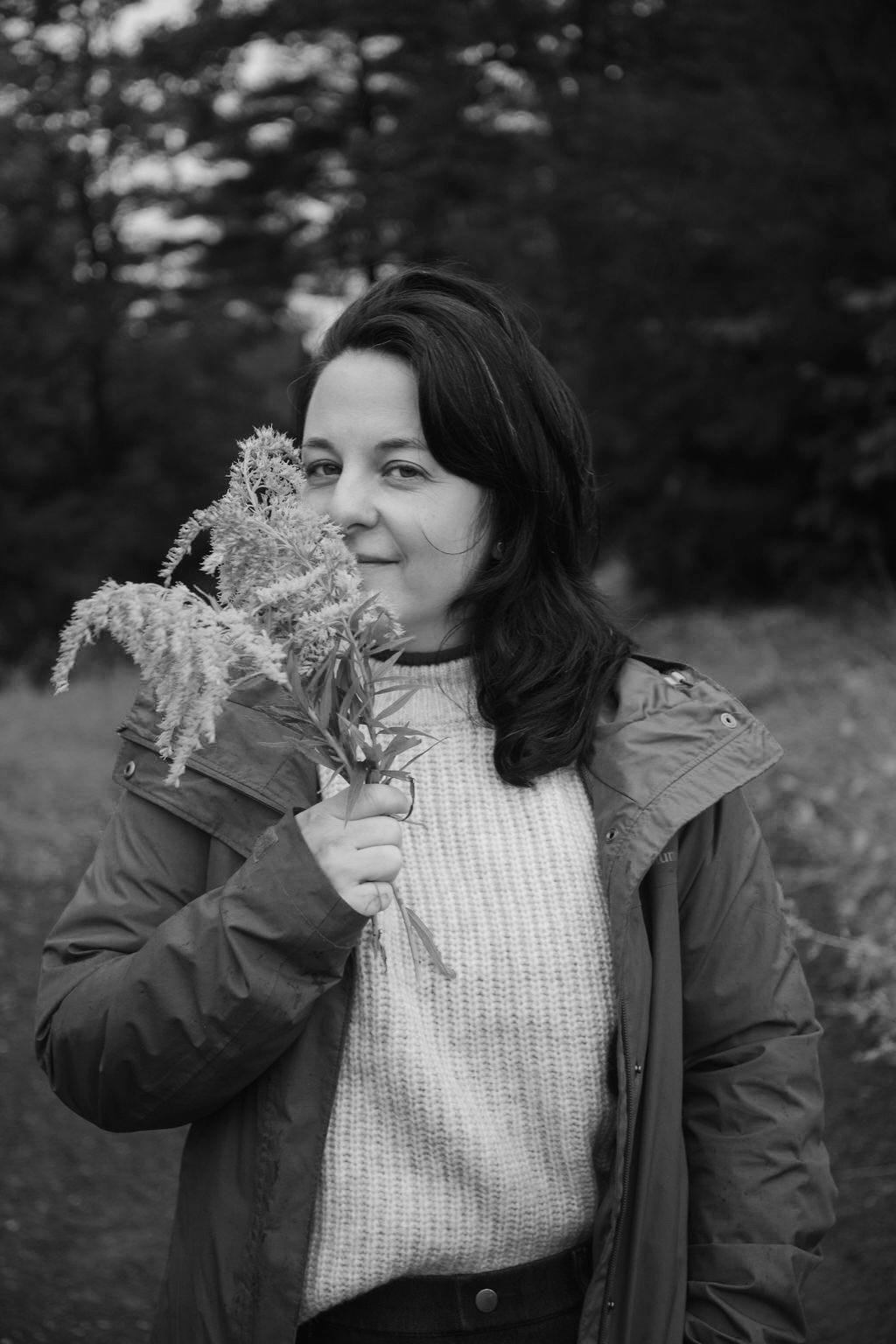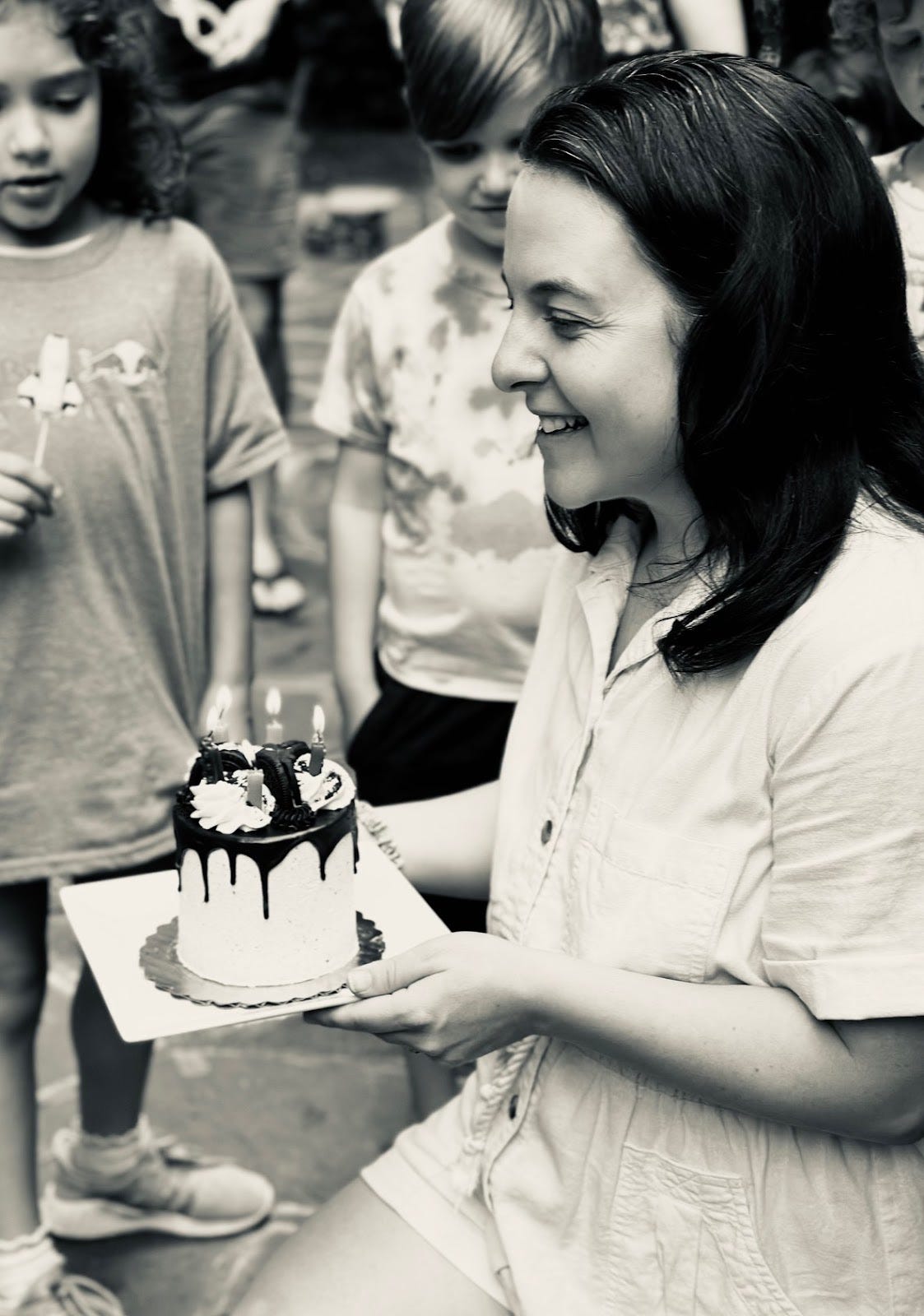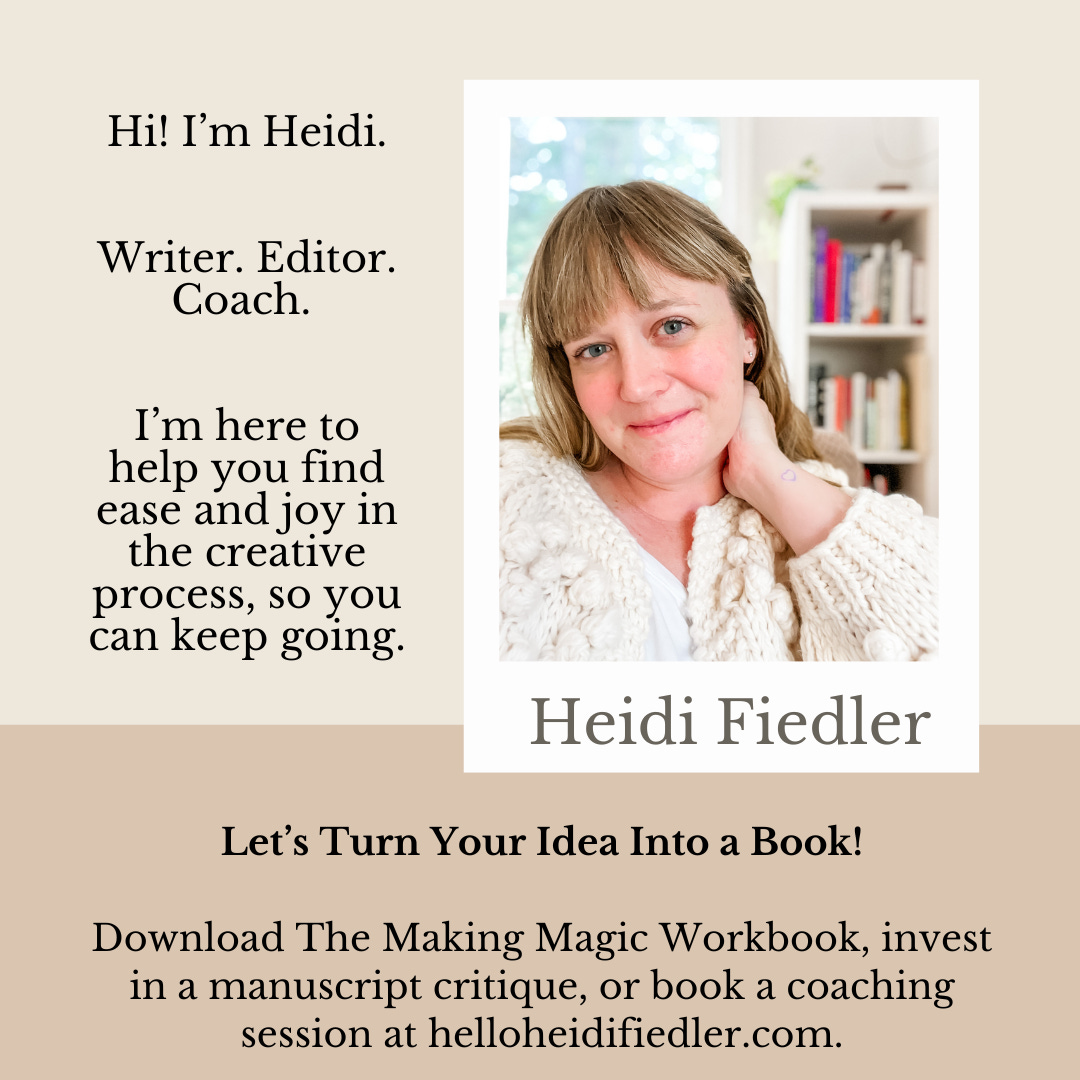What did you use to do during recess?
The most vivid memories I have of “playing” during recess do not involve a playground. The school I attended from 4th-6th grade in Utah had a playground that was exposed, dusty and burning hot during the warmer months, but around the edges, there was a border of scrub oak through which a blissfully cool breeze would blow. We would squat at the edges of what to us seemed like a magical forest, and tuck seeds into the dirt.
On some days, we pretended to grow our own food like the Indigenous people and pioneers of Utah’s past that we studied in school. On other days, we simply hoped that something new and interesting would arise, something that we three grew with our own hands. To that end, we would save our milk cartons at lunch, peel open the tops, fill them with water from the drinking fountains, and go out each day to water our parched ground.
Unfortunately, nothing ever did grow there. We were three nerds in a group of nerdy kids, all part of a Gifted and Talented program that pulled in kids across the district who scored high on standardized tests, but no one had ever taught us how the living world actually worked. That is, how to know when a seed was ready to be harvested from a plant, how deep you had to plant it, how to fertilize it and keep it going, how to protect it from animals. No one, in short, had explained to us how truly magical and miraculous it was to witness life unfolding on Earth, how easy it is for things to die, how lucky you have to be to grow enough food to keep even one person or family alive. I think we would have appreciated the ones who came before us on the land even more if our small gardening project had been incorporated into the curriculum of our classroom, rather than something we did intuitively, on our own.
Ironically, it was this memory, of being blissfully, naively unguided – of being literally lost in the woods – that helped me to reorient my career after I finished graduate school as a teacher. At that point, I had been living and teaching for a few years in New York City, and was feeling very cooped up and cut off from nature, and very depleted as a result. I decided to explore what it might mean to be a food and garden educator, someone who got to work with living things all day long, often outside. I was lucky to string together several gigs in this field for the next few years, helping other children like me to discover the magic of seeds.
Nowadays, as a busy mom, my actual garden is much smaller than it was when I was doing this work full-time, but the memories from that time, of teaching hundreds of city children to grow something new with their own hands, nourish me still.
How did motherhood change your creative practice?
Becoming a mother was its own creative practice for me for a while, because ironically, I experienced infertility during my years of being a garden educator, before becoming pregnant with my son, who is now five. I also experienced a late pregnancy loss while at the top of my game, years later as a classroom educator, caring for ninety middle schoolers post-pandemic while tending to my infant son. These experiences really reshaped the way I think about the human body, and what it means to mother and be mothered.
Sex education in America makes it seem like it’s incredibly easy to make a baby with your body, that it can happen by accident at literally any time, as simple as throwing a bunch of seeds upon parched earth. My journey towards motherhood taught me something different: how truly magical and miraculous it is to witness life unfolding on Earth, how easy it is for things to die, and how lucky you have to be as a mother to keep even one person or family alive. As with seeds in the ground, there are so many factors that have to come together in order to create something new. We get to collaborate with some of those factors – sun, water, other beings – but we are not in control.
I think that this has changed my creative practice because I have more compassion for myself and more respect for the conditions around me than I did before I began my motherhood journey. Creativity doesn’t just happen; I have to create not only the work but the conditions for the work. Balancing the mental load, setting boundaries with work, getting enough rest – this too is creative work. I can’t plant in parched ground.
I also find that when I show up for my creative practices – writing, gardening – I have more presence for other things in my life. Without these things, I would not have as many seeds of wisdom or patience or to pass on to my son. And he needs those seeds. He needs me to water my own, and to water his, any way that I can.
It’s okay with me if my creative practice, on some days, is the equivalent of carrying teaspoons of water out to my seeds in a recycled milk carton, instead of cultivating some theoretically perfect glassed-in greenhouse garden in which there are never any intrusions, never any mess, never any moments where I’m asking myself, “Why the fuck is nothing growing here?” What matters is that I plant. What matters is that I water. What matters is that I do what I can.
If nothing is growing, in my garden or my practice, I’ve learned to accept that perhaps, conditions just were not or are not what they needed to be. And tomorrow I can create new conditions for something new to arise. That’s the only power I have.
And, that is still a huge, cosmic power.
I think that this power, the power that mothers possess, is why people who are not mothers seem to be so obsessed with controlling us and our creative output, denigrating our worth, and undermining the agency we have to decide what grows and what doesn’t in our lives. Claiming this power to create – and also the right not to create – is not only a luxury, not only an unselfish act, but our birthright.
That is what motherhood and creativity mean to me.
What’s your favorite super easy creative practice to do when you’re looking for fresh ideas?
I take a long walk in a beautiful place, and record a voice memo to send to one of my fellow writer-friends.
My friends and I have typically got a good volley going, so I’m not starting from scratch – I’m just responding to a theme in what they’re sharing about their own lives via voice memo that calls to me, that’s got both of us a little inspired – or a little riled up and angry, whatever the case may be. Sometimes I’ll shoot some photos to share with them too. Often these audio and visual elements become the basis for a draft of my newsletter – I’ll run the voice memo through a transcription app later and see what seeds I can pluck out.
Typically, when I’ve been outside, my mind is also a bit more integrated and open than it was before I began, a little less fearful and self-critical, and this also creates the conditions for those seeds to sprout and grow.
How can we support and encourage each other more?
Related to the above: I think having friendships with other people who are walking the same creative path as you, in both parenthood and creativity, is so essential. Otherwise, we end up comparing ourselves to someone whose conditions are nothing like ours – to Hemingway, say, who probably never changed a diaper in his life, and who did not have to watch his kid while juggling Zoom calls on days when said kid is running a fever and can’t go to school. In gardening terms, this is like an organic farmer in Maine comparing their output to that of a landscaper in San Diego. What is the benefit of that? We need people who are tilling the same soil as us to give us their best embodied wisdom, and to tune out the rest of the noise.
This can be so, so hard in intensive caregiving seasons, when it seems like our small children need us all the time, or we’re strung between their needs and those of our aging parents, or we’re slammed at both work and home. But cultivating an ongoing volley between yourself and just one other person, exchanging voice memos while you’re driving to daycare pickup or running to the post office, or emailing them during your lunch break from someplace where your boss can’t look over your shoulder, can be such a lifeline.
That said, sometimes our friends who are parents can’t get their heads above water. If we only have friends who are parents, we can experience a lot of loneliness, and this too can dry up our creative practice.
So, this might mean that we as mothers also need to lean on our friends who are child-free by choice, who may have many professional obligations but perhaps a bit more agency over their free time. We can ask them to walk us through this hard time by sharing their passions, their advice, their time and energy.
These friendships can sometimes feel fraught, so I want to acknowledge that they too take work. They can falter if child-free people fail to understand that motherhood is a creative act, one that deserves to be honored alongside one’s novel in the drawer, or the collaging project in the attic. It is not a giving up, not a selling out, not a dumbing down. These friendships can also fizzle out if mothers become sanctimonious and holier-than-thou about having children, saying things like “You just don’t know what love is unless you have children.” Child-free people might be doing the work of love on themselves or in their communities in ways that parents of small children cannot, and this work matters and teaches and enriches their lives. We can learn a lot about love from them.
In both cases, I think it is ego and not actual reality that gets in the way of the friendship. So I would say that in addition to making the time and doing the work, checking one’s ego can help us to support and encourage each other more.
What do you hope your kids will learn about creativity from you?
My son is currently working hard on his pencil grip – he has had fine motor challenges since he was little. It breaks my heart, as a person who values creativity, to see him struggle to wield a paintbrush or shy away from coloring. But I’ve been teaching him that when you’re running into trouble with one creative space in your life, you can always try another. So right now we’re also working on making art and “inventions” out of found objects – pieces from games we don’t play anymore, items from the junk drawer. These are easier for him to work with, and to see him get excited again about art is so joyful for me.
My journey to create him taught me that sometimes, our bodies and other conditions don’t cooperate with our creative visions. But we have to keep showing up, keep tending the soil. Eventually, something will emerge, and it will be just the right thing. Something only we can make. And that is enough. It is more than enough.
Ryan Rose Weaver is a parent, educator, writer and consultant based in Massachusetts. She helps caregivers break free of burnout and live happier, healthier, more liberated lives. You can follow her here on Substack at…
She does NOT send out “breathy meditations with distracting New Age music in the background, content that is religious in a preachy or jargon-y way, or content that is whitewashed to the point that it lacks appropriate credit, context or critique when it comes to the specific cultural or historical roots of a particular topic.”
Nebula Notebook is a place to meet kindred spirits, get inspired, and learn how to find ease and joy in the creative process—even when life is bananas. 🍌🍌🍌
✏️ PS—The fastest way to grow as a writer is to book a manuscript critique or a creative coaching session with an expert. My clients get agents, sell books, and win awards. They also learn how to enjoy the creative process, so they can keep going when life gets hard. 👏








